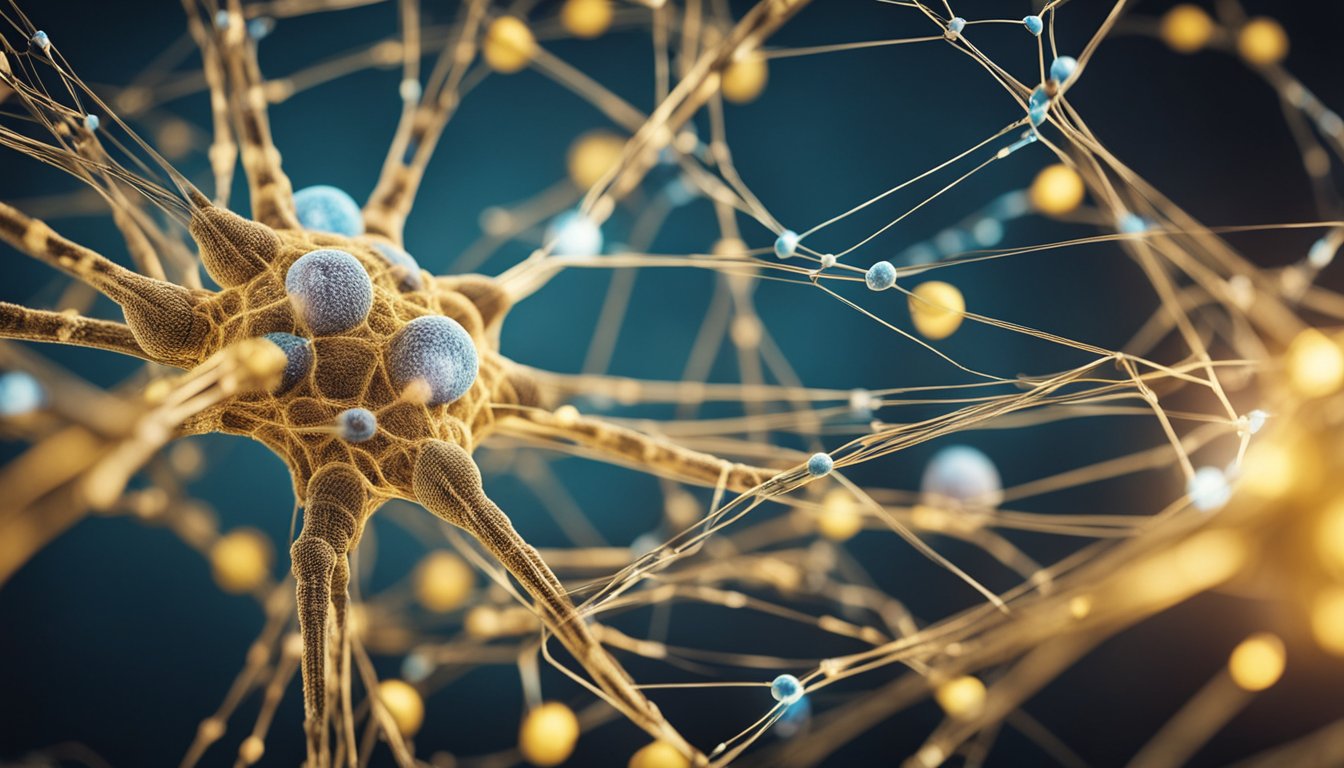Late updated: 14 Jul 2024 14:07
Written by: Ella Thompson
Exploring The Psychology Of Addiction: Unraveling Behavioural Patterns
Addiction is a complex condition influenced by numerous psychological factors. As we explore the psychology of addiction, it becomes evident just how deeply intertwined addictive behaviours are with our mental and emotional wellbeing. The compelling need to repeat an activity despite its harmful consequences underscores the powerful grip addiction can have on an individual.

Our quest begins by examining the psychological foundations and research surrounding addiction. Numerous theories highlight that biology, psychology, and social factors all play crucial roles. This article will address how understanding these elements can offer valuable insights into prevention and treatment strategies.
We'll also delve into how addiction impacts everyday life and what potential triggers contribute to its development. Groundbreaking studies continue to shed light on these aspects, providing essential knowledge to both professionals in the field and those affected by addiction.
Key Takeaways
- Addiction involves repeating harmful behaviours due to compelling needs.
- Biological, psychological, and social factors all play roles in addiction.
- Understanding addiction's impact offers strategies for prevention and treatment.
Foundations of Addiction Psychology
In discussing the foundations of addiction psychology, we address the multidimensional aspects of addiction. These aspects include the biopsychosocial model, core psychological theories, and the roles that brain chemistry and structure play.
Biopsychosocial Model
The biopsychosocial model illustrates how biological, psychological, and social factors interact to influence addiction.
Biological factors consist of genetic predispositions and brain chemistry shifts. For example, changes in dopamine levels can significantly impact addiction tendencies.
On the psychological front, mental disorders such as anxiety and trauma can contribute to addictive behaviours. Individuals often utilise substances as coping mechanisms.
Social factors play a critical role. Our social networks, peer pressure, and socio-economic status affect our vulnerability to addiction.
Core Psychological Theories
Addiction involves several key psychological theories. One significant theory is cognitive behavioural therapy (CBT). CBT posits that addiction can be managed by altering thinking patterns and behaviours. This approach is highly effective in treating addiction.
Psychodynamic theories explore how early life experiences and unresolved conflicts influence addictive behaviours. These theories stress the importance of understanding an individual’s background.
Behavioural theories focus on how addictive behaviours are learned through conditioning and reinforcement. For example, sensation seeking and impulsivity are core traits examined under behavioural perspectives.
Role of Brain Chemistry and Structure
The brain plays a pivotal role in addiction. Changes in brain chemistry and structure can cement addictive behaviours.
The prefrontal cortex, responsible for decision-making and impulse control, often shows reduced activity in individuals suffering from addiction. This reduction compels them to engage in impulsive behaviour.
Dopamine is a neurotransmitter associated with pleasure and reward. Abnormal dopamine levels can lead to compulsive substance use.
Neuroscience provides a deeper look into how different brain regions are implicated in addiction. Understanding these structural and chemical changes can help develop more effective treatments.
Mechanisms and Impacts of Addiction

Addiction intricately involves both psychological and physiological processes, affecting individuals on multiple fronts. Below, we explore addictive behaviours, the progression of addiction, and its multifaceted consequences.
Addictive Behaviours and Disorders
Addictive behaviours encompass a range of activities, including substance use, gambling, and compulsive eating. These actions negatively impact a person’s life and are often pursued despite known adverse effects. Substance Use Disorders (SUDs) cover issues with drugs, alcohol, and smoking, rooted in changes to brain chemistry and neural pathways.
Sex and gambling addictions trigger similar dopamine entries. Stress and environmental exposure also contribute to habit formation, increasing dependence over time. Recognising these behaviours helps us provide better support.
The Process of Addiction Development
Addiction development starts with initial exposure to a substance or activity. This exposure often brings a sense of pleasure or euphoria, encouraging repeated engagement. Over time, the body builds tolerance, requiring increased amounts to achieve the same effect. This progression can lead to dependence, characterised by withdrawal symptoms when the substance is absent.
Stress and emotional problems often accelerate this process. Brain regions like the nucleus accumbens, which plays a critical role in reward processing, undergo significant changes. Therapy and medical interventions can mitigate these effects, emphasising the importance of early detection.
Consequences and Treatments
The consequences of addiction are far-reaching, impacting physical health, mental well-being, and social relationships. SUDs often lead to chronic health problems such as liver disease for alcohol use, cardiovascular issues from smoking, and neurological damage from drug use. Eating disorders can cause severe nutritional deficiencies, while gambling and sex addictions often result in financial and social turmoil.
Effective treatments often include a combination of medication, therapy, and support systems. Cognitive-behavioural therapy (CBT) and other mental health services offer pathways to recovery and reduce the risk of relapse. Medications may be prescribed to manage withdrawal symptoms, supporting the individual through their recovery journey.
Understanding the mechanisms and impacts of addiction is crucial for developing comprehensive treatment strategies and providing adequate support to affected individuals.
Frequently Asked Questions

We address common inquiries to deepen our grasp of addiction psychology, shedding light on behaviours, theories, learning perspectives, recovery paths, types of addiction, and the influence of early life and environment.
What constitutes addictive behaviour within a psychological framework?
Addictive behaviour involves engaging compulsively in activities like substance use or gambling. This compulsion is driven by the brain's reward system, where the activity provides pleasure, resulting in an obsession to repeat it. The pattern forms despite harmful consequences, showcasing the powerful grip of addiction on the individual's psychology.
How do the three main psychological theories explain addiction?
The biological theory focuses on genetic and neurochemical factors, suggesting innate vulnerabilities to addiction. The behavioural theory emphasises learned behaviours and reinforcement through rewards. Finally, the cognitive theory examines dysfunctional thoughts and belief systems that contribute to addictive behaviours. Each theory provides unique insights into the complexities of addiction, helping inform treatment approaches.
In what ways can we understand addiction through the lens of learning theory?
Learning theory views addiction as a habit formed through classical and operant conditioning. Classical conditioning ties addiction to environmental cues, while operant conditioning links it to positive reinforcement and avoidance of withdrawal discomfort. By understanding these mechanisms, we can better shape prevention and intervention strategies to disrupt harmful habits.
What are some typical paths of recovery in the context of addiction psychology?
Recovery paths often include detoxification, therapy, support groups, and sometimes medication-assisted treatment. Cognitive-behavioural therapy (CBT) and motivational interviewing are commonly used to address the underlying psychological aspects. Support systems and long-term aftercare are crucial in maintaining sobriety and preventing relapse.
Can you elaborate on the various types of addiction recognised in psychological studies?
Psychological studies identify substance addictions like alcohol, drugs, and nicotine. There are also behavioural addictions, including gambling, internet use, and gaming. Both types share similar psychological processes and can have devastating impacts on individuals' lives, requiring specialised approaches for effective treatment.
What role does early childhood and environment play in the development of addictive behaviours?
Early childhood experiences and environmental factors significantly impact addiction risk. Exposure to substance use, trauma, and lack of stable support can increase vulnerability. Genetics play a role, but environmental influences such as parenting style, peer pressure, and socioeconomic status shape the likelihood of developing addictive behaviours.
